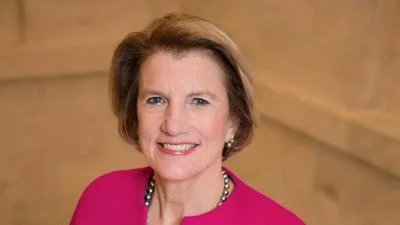Washington, D.C. - Communications and Technology Subcommittee Republican Leader Bob Latta (R-OH) delivered remarks during today’s FCC oversight hearing on the importance of congressional oversight to help Americans stay connected.
Excerpts and highlights from his remarks:
KEEPING PEOPLE CONNECTED DURING COVID-19
“Good morning, and welcome to the first FCC oversight hearing held by the Communications and Technology Subcommittee this Congress. Congratulations Chairwoman Rosenworcel on your confirmation, and to Commissioner Simington on your first appearance before our Committee. While it has been a year and half since the Commission last testified before us, much has happened in the communications industry, and we have many important topics to cover today.
“Since the onset of the COVID-19 pandemic, Congress appropriated billions of dollars to the FCC to establish programs to connect low-income Americans to the Internet for distance learning and telehealth. We also appropriated tens of billions of dollars across several Federal agencies to expand broadband infrastructure across the United States.
“While these programs were necessary at the time to help Americans stay connected through the pandemic, it is encouraging that broadband prices in the United States continue to become more affordable thanks to private sector offerings. Recent government and industry data confirm that, when adjusted for inflation, the cost of broadband is decreasing while speeds are increasing. In fact, the $30 per month subsidy that will be available to Americans through the Affordable Connectivity Program is higher than the cost of plans being offered by certain broadband providers.
“That doesn’t seem to add up."
APPROPRIATE AMOUNT OF GOVERNMENT INVOLVEMENT
“What is less clear is why adoption continues to be a problem. If cost is the primary driver of non-adoption, then theoretically, every American who has broadband services offered in their community should have broadband. But that is not the case, and we need to seriously consider what role, if any, the government should play in encouraging adoption given the numerous private sector programs in place.
“We need to continue to focus on deploying broadband where it doesn’t exist. As agencies implement programs authorized in the Infrastructure Investment and Jobs Act, it is imperative that we do not pick winners and losers and existing programs like the Rural Digital Opportunity Fund are not undermined. With the investment landscape changing, it is essential for Federal agencies to rely on the FCC’s forthcoming broadband maps to avoid overbuilding or federally subsidizing duplicative projects.
“Given the incredible volume of work the FCC has completed in establishing new programs in a short period of time, it is critical that the FCC is transparent and responsive to this committee in a timely manner. The amount of money appropriated is ripe for waste, fraud, and abuse. Our diligent oversight is absolutely essential to ensure that does not happen. We have already seen the FCC’s Office of Inspector General publicly raise instances of fraud risk in the Emergency Broadband Benefit program. As the Affordable Connectivity Program and other programs are implemented, we will be following this work closely.
“I appreciate that this Commission has continued the work of the previous Administration by increasing transparency and has already accomplished bipartisan work. I hope to see this bipartisanship continue if and when the Commission gets its fifth Commissioner."
NEED FOR FCC OVERSIGHT
“Apart from COVID response, the FCC has many important missions, from expanding rural broadband through the Universal Service Fund and leading broadband mapping efforts to managing non-Federal spectrum and combatting unlawful robocalls. In addition to these ongoing responsibilities, the FCC has several immediate issues that it needs to address.
“First, Congress enacted the Secure and Trusted Communications Networks Act in 2020 to prohibit USF funds from being used to purchase hardware or services for communications networks that pose an unacceptable risk to national security. It also established a reimbursement program to assist smaller providers with the removal and replacement of this vulnerable equipment.
“Unfortunately, the demand for these reimbursements significantly outstripped the initial estimates, and the FCC should keep Congress apprised of any shortfall that remains once the applications are reviewed, as well as how these funds are intended to be spent.
“Second, Congress enacted the TRACED Act in 2019 to combat the scourge of illegal robocalls. Congress, the FCC, and private industry have made this a top priority, and several advancements have been made both in the government’s response and in action by voice providers to stop calls before they even get to your phone. Despite this progress, more must be done to ensure that illegal robocalls don’t slip through the cracks and are blocked so that legitimate calls are able to get to Americans who need them.
“As Congress looks to build on the tools that the TRACED Act provided, I encourage the FCC to work with my colleagues and me to ensure that the proper tools are available to both regulators and private industry.
“I look forward to discussing the important issues before the Commission and thank you to the Commissioners for being here today."









